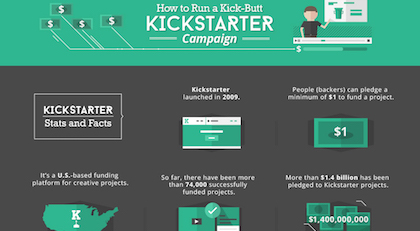Patents in the United States have been around since the 1700s. Since then, over 8 million patents have been handed out to inventors and entrepreneurs to protect their ideas.
So how much does it cost to patent an idea, anyway?
If you’re looking to patent your product for an upcoming or successful crowdfunding campaign, note that it’s not going to be cheap.
However, obtaining property over your unique design could mean fending off copy-cats over the long haul — leading to exclusive profits for your business.
In this article, we’re giving you the costs associated with patenting an idea as well as how to obtain a patent so that you can garner a better understanding of the process.
Here we go!
How Much Will a Patent Cost You?
We’ll cut right to the chase — the total upfront cost of a patent is going to cost you at least $5,000, with more complex products such as software running up over $15,000.
The cost of your patent is going to depend on how complicated your product is.
Let’s say you were to invent a sticky note or a hair tie. These would be classified as a ‘simple’ invention, and would probably cost $5,000 – $7,000 to protect.
But let’s say you’ve invented a new computer software program that protects against phishing. Because this invention is much more difficult to define and identify as its own unique entity, protection for this sort of product could reach $20,000.
Keep in mind that just because you’ve obtained a patent, it doesn’t mean that the expenses are over yet.
Over time, inventors and other companies might prosecute the patent. You should expect to pay lawyer and legal fees to keep your patent enforceable, meaning that the price of the patent will accumulate over time.
It’s difficult to estimate just how much these accumulating costs could pile up to. If your product is extremely desirable, you’ll have to pay more to protect it. If you’re operating in a very exclusive niche without much demand, you might be able to skate by without much challenge.
What Type of Patent Should You Apply For?
The actual costs associated with filing a patent account for just a fraction of the total estimated cost. The fee itself is only a couple hundred dollars, with discounts available for small businesses and individual inventors.
When people talk about patents, they are usually referring to utility patents.
Utility patents cover creations of products, processes, or machines, prohibiting others from producing, using, or putting the invention up for sale without your authorization — making them an extremely valuable asset.
For your crowdfunding project, you are most likely going to deal with a utility patent.
Technically, you can file a utility patent on your own. But the process is extremely complicated and takes a huge amount of work for no guarantees.
That’s why most people will hire a lawyer to complete their patent application, which is where the real costs come in.
Unlike other lawyers, patent lawyers usually have technical degrees specific related to patents in addition to their basic legal training. For technology fields, patent lawyers will often have PhDs specifically dedicated to the process.
With the assistance of a patent lawyer, you’ll be paying for:
- Their time and expertise in preparing and submitting your utility patent
- Negotiations with the patent office on your behalf
- Any appeals that might be necessary to the patent office’s internal review board
If one thing is certain about lawyers, the costs are going to add up quickly. It’s a big decision as to whether or not to invest in a patent, and it’s one that should be made carefully.
Other Types of Patents You Could Apply For
When it comes to getting full protection for your product, a utility patent is the only type that will guarantee exclusivity, should it be awarded.
However, there are other types of patents that could protect certain elements of your project.
Provisional Patents
Provisional patents can be thought of as preemptive patents that seek to eventually turn into full utility patents.
These types of patents are much less complicated and formal, and cost a lot less to prepare. However, keep in mind that these patents will only protect you for one year before that larger investment of a utility patent comes into play once again.
Still — it could be a viable option while you launch your crowdfunding campaign. And if you see a great deal of success, you could allocate the money you raised from your campaign towards pursuing a utility patent.
Design Patents
Design patents are designed (pun intended) to protect:
- Fashion items
- The design of manufactured goods
- The layout of user interfaces
Design patents cover aesthetic choices.
For example, Facebook could file a design patent to protect the look of their user interface, but they couldn’t protect the concept behind it.
All in all, design patents are finicky and usually won’t apply to Kickstarter or Indiegogo products unless they are building off another product in some unique way.
Should You Patent Your Product for a Crowdfunding Project?
Now that we’ve worked to understand the costs and processes of patenting your idea, the question remains: Should you patent your product for your crowdfunding project?
In short, probably not — at least in the early stages.
Kickstarter and Indiegogo campaigns already require a pretty significant investment for success. You’ll have to put money into things like:
- Marketing your campaign
- Manufacturing and order fulfillment
- Paying team members
In our opinion, all of these elements are more important to the success of your project than obtaining a patent.
If your project is wildly successful and you have extra money laying around after your campaign, then you can look into getting a utility patent — especially if you are looking to grow and keep control of market share.
When it comes to crowdfunding, there’s a lot to consider.
Make sure to stay informed by subscribing to my Youtube Channel where I’m always giving you the best advice, and check out my podcast where I talk with experts who have launched successful campaigns in the past.
Looking for more personalized advice?
Book a coaching call with me. I’ve helped tons of successful campaigns reach their funding goals, and I’m ready to go to work for you!









